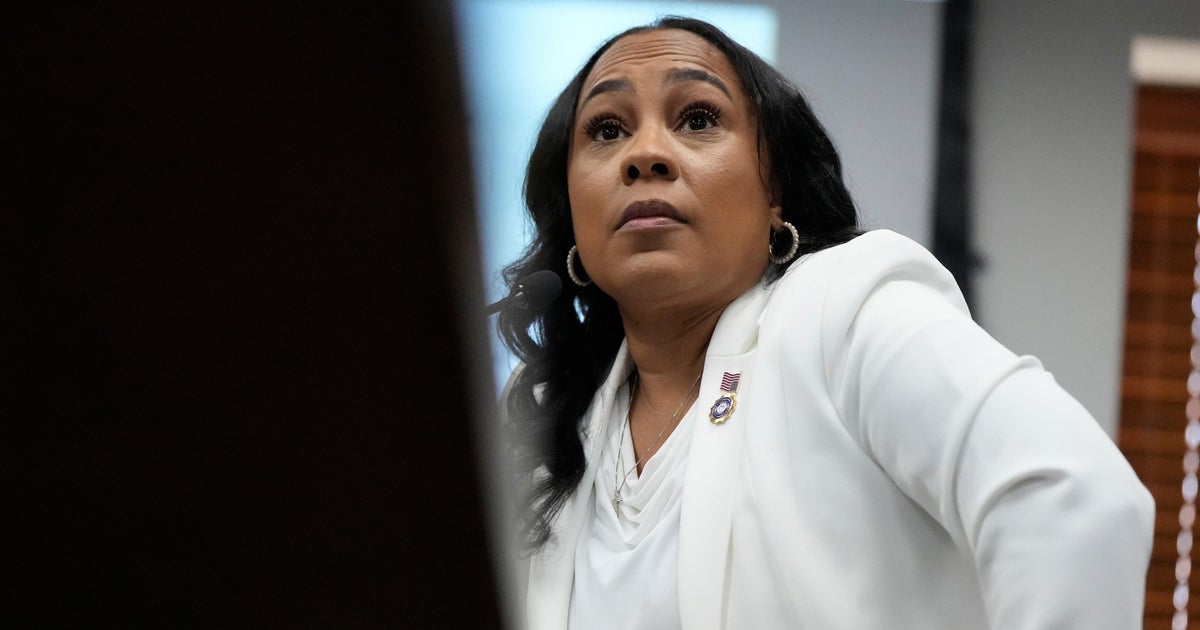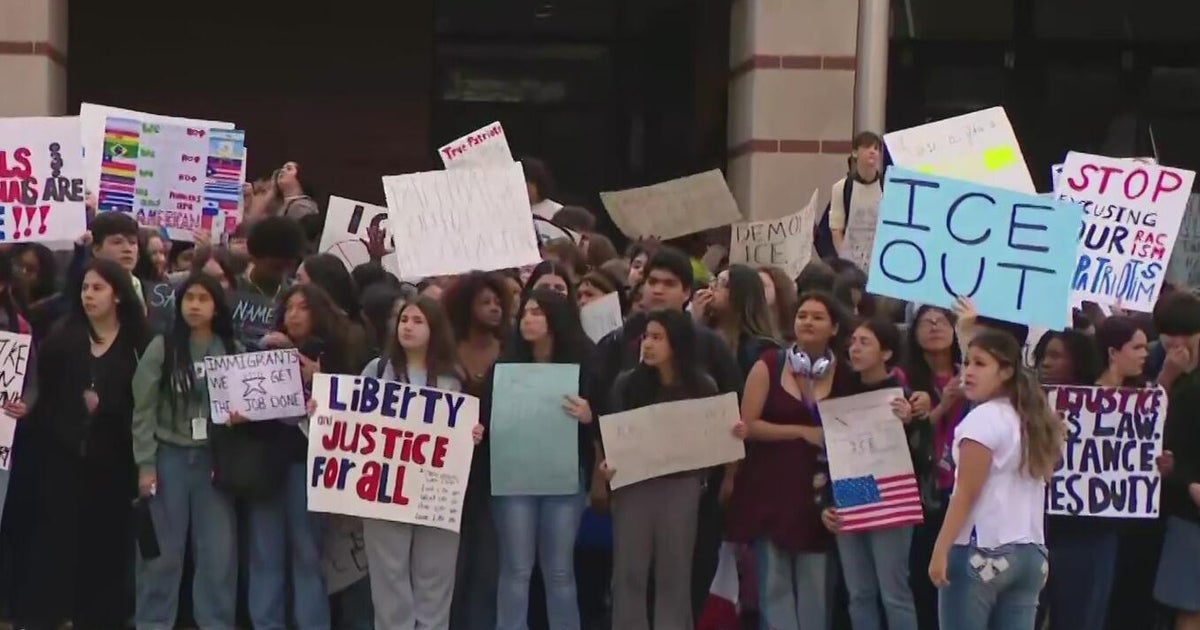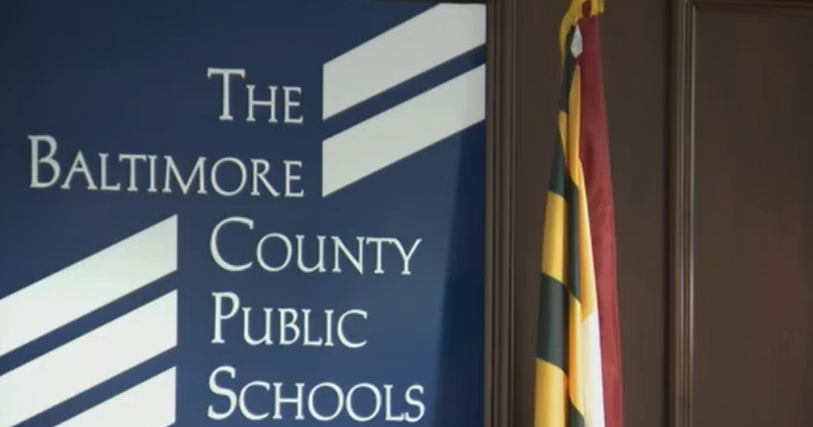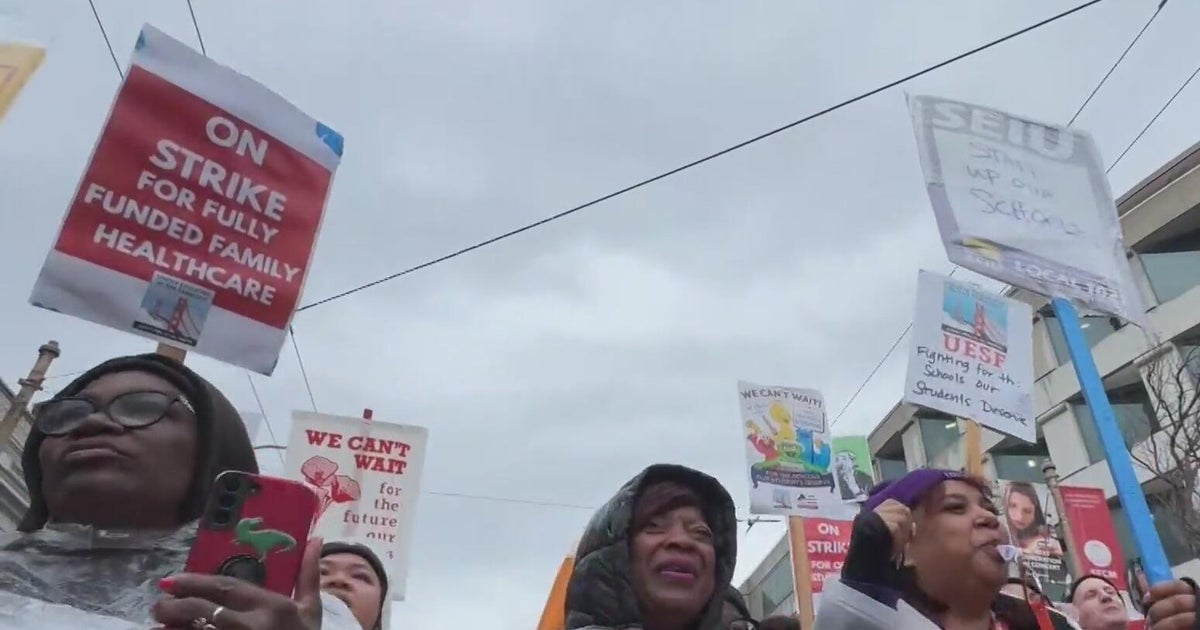Texas School Funding Still Unconstitutional
AUSTIN, Texas (AP) - A judge declared Texas' school finance system unconstitutional again Thursday, finding that even though the Legislature pumped an extra $3 billion-plus into classrooms last summer the state still fails to provide adequate funding or distribute it fairly among school districts in wealthy and poor areas.
State District Judge John Dietz's written ruling reaffirms a verbal decision he issued from the bench in February 2013. He declared then that the state's so-called "Robin Hood" funding formula fails to meet the Texas Constitution's requirements for a fair and efficient system that provides a "general diffusion of knowledge." He also found then that the system levies local property taxes in a way tantamount to a state income tax, which is also constitutionally prohibited.
Dietz's ruling will almost certainly be appealed to the Texas Supreme Court by state Attorney General Greg Abbott's office - a process that should take months. If the high court again rules against the state, it will be up to the Legislature to design a new funding method. But the appeals process may not be over until well after the 2015 session has ended.
The case grew out the Legislature's cutting $5.4 billion from public education in 2011, prompting more than 600 school districts responsible for educating three quarters of Texas' 5 million-plus public school students to sue.
They claimed they no longer had sufficient resources to educate students. The lawsuit cited Texas' school enrollment growth of nearly 80,000 students per year due to a booming population and the Legislature's increased demands for standardized testing and curriculum requirements to graduate high school.
Schools in rich and poor areas were on the same side in the case because the Robin Hood system requires districts with high property values or abundant revenue from oil or natural gas interests to turn over part of what they collect in property taxes to poorer districts. Poor districts said that wasn't enough, while schools in wealthy areas argued that voters often refuse to approve local tax increases they might otherwise support since much of the money would go elsewhere.
Dietz's initial verbal ruling came after 44 days of testimony, but he held off compiling a written ruling that would start the appeals process. Four month later, lawmakers restored more than $3.4 billion to classrooms, translating to a 2014-2015 public education budget worth nearly $56.3 billion, and slashing the number of standardized tests required for high school graduation from 15 to five.
Dietz then reopened the case this past January, hearing testimony on how the extra funding and curriculum standards overhaul had affected school districts. But the new evidence wasn't enough to change his mind.
Abbott's office argues that while the system is flawed, it's not at breaking point. Though Abbott himself is running for governor and hasn't argued the case, the issuing of Deitz's ruling in writing may make the case a campaign issue. Abbott's Democratic opponent, state Sen. Wendy Davis, has claimed it makes him anti-school.
The case is the largest of its kind in Texas history, but most of the issues aren't new. Dietz also found the state school finance system unconstitutional after a lengthy trial in 2004. Seven major court battles have now raged since 1968 when students and parents in San Antonio first sued, alleging that, despite sky-high local property taxes, their urban schools featured cracked windows and un-air conditioned classrooms while schools in the wealthy suburbs were comparatively luxurious.
Here's a look at major dates in Texas' school finance debate:
- 1984: Edgewood Independent School District in San Antonio files a legal challenge arguing Texas' school finance system is inequitable
- 1989: The Texas Supreme Court throws out the state's school funding law after finding "glaring disparities" between rich and poor school districts.
- 1993: Days before a court-imposed deadline threatened to close Texas schools, the state Legislature forces school districts in areas with high property values to share their tax collections with poorer districts as a way to fund schools.
- 1995: The Texas Supreme Court upholds the share-the-wealth system, nicknamed "Robin Hood."
- 2003: Attorneys for property wealthy school districts argue before the Texas Supreme Court that school funding plan is inefficient and has created an illegal statewide property tax after many districts pushed collections to the legal limit. Nearly 300 other districts eventually join the case and expand its claims against the state to include that the funding system is inequitable and fails to provide sufficient resources.
- 2004: After a trial involving more than 300 districts, state District Judge John Dietz rules the education funding system unconstitutional and inefficient, and orders the state to halt school spending in October 2005 if problems aren't fixed.
- 2005: The Texas Supreme Court rules that local property taxes for school funding amount to an unconstitutional statewide tax.
- 2006: The state Legislature cuts local school property taxes by one-third while allocating more state funding. To ensure no district loses money, lawmakers place minimum funding requirements to districts based on a temporary freeze in the amount of money districts spent per student that year. The temporary freeze is never lifted, however. The Legislature also caps tax rates at $1.17 per $100 of property valuation and lets district choose how much to levy in taxes, giving them "meaningful discretion" over tax rates.
- Oct. 11, 2011: More than 360 school districts organized by the Equity Center sue the state, alleging that the school finance system is inequitable because property wealthy school districts often receive more revenue than poorer districts despite levying lower property tax rates. They also allege that school funding is inadequate to meet the state's accountability system.
- Dec. 9, 2011: The Texas School Coalition, representing more than 60 property wealthy school districts, files suit charging that state funding is inadequate and that the $1.17 cap on tax rates constitutes an illegal state property tax.
- Dec. 13, 2011: The Mexican American Legal Defense and Educational Fund sues, claiming state funding is unfair to districts with a large number of students requiring instruction to learn the English language, and that the system itself is inadequate and inequitable and that the tax rate cap is an illegal state property tax.
- Dec. 22, 2011: Sixty-three school districts, including many of the state's largest, file suit claiming state funding is inadequate and the tax rate cap is an illegal state property tax.
- Feb. 24, 2012: Texans for Real Efficiency and Equity in Education sues on behalf of five families, asking the courts to address inefficiencies in how state education funding is spent. The influential Texas Association of Business subsequently joins the suit.
- June 26, 2012 - The Texas Charter Schools Association and six parents file suit, claiming charter schools should have access to public money for facilities and that there should be no limit on the number of charter schools statewide.
- Oct. 22, 2012 - School finance trial begins in Austin before Judge Dietz.
- Feb. 4, 2013 - Dietz rules that the school finance system is unconstitutional, finding that it doesn't provide adequate funding and that state funding is not distributed in an equitable way.
- Jan. 21, 2014 - Dietz convenes second school finance trial to determine whether more money and fewer standardized tests have adequately improved the balance for students in rich and poor areas.
- Aug. 28, 2014 - Dietz reaffirms school finance system is unconstitutional despite restored funds by the Legislature.
(© Copyright 2014 The Associated Press. All Rights Reserved. This material may not be published, broadcast, rewritten or redistributed.)
Latest News:
Top Trending:







